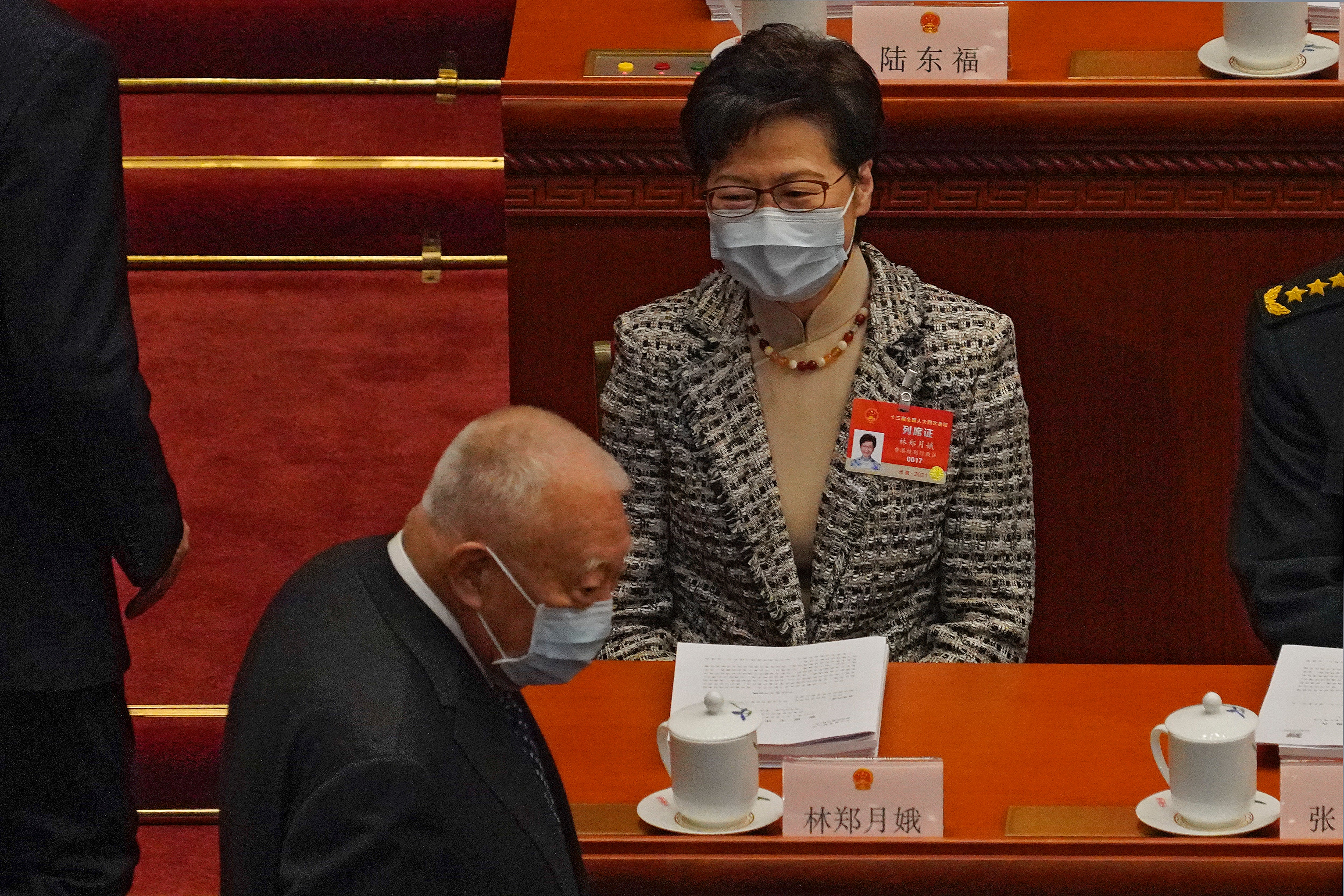Hong Kong leader 'fully welcomes' proposed electoral reforms
Hong Kong leader Carrie Lam said Monday that the Hong Kong government “fully welcomes” the reforms to the city’s electoral system, after Beijing proposed a major revamp that will increase central government control over Hong Kong politics

Hong Kong leader Carrie Lam said Monday the city's government “fully welcomes” the electoral reforms that have been proposed by Beijing and will increase central government control over local politics.
Chinese authorities have said the draft decision before China's National People’s Congress would mean the largely pro-Beijing committee that elects Hong Kong’s leader would also choose a large part of the legislature to ensure that the city is run by “patriots.”
Currently, half of Hong Kong’s legislature is directly elected by voters.
“There are loopholes in the electoral systems, there are also flaws in the systems in Hong Kong,” Lam said at a news conference after she returned from the meeting in Beijing. “I fully understand that this is not a matter that can be addressed entirely by the government.”
“I’m glad that the central authorities have, again, exercised its constitutional powers to help address this problem for Hong Kong,” she said.
She declined to elaborate on the views she had shared to the central authorities regarding the electoral reforms, and said many pieces of legislation in Hong Kong would have to be amended. The NPC, China’s ceremonial legislature, will all but certainly endorse the draft decision.
Lam also said she could not confirm whether legislative elections — already postponed for one year last September ostensibly because of the coronavirus pandemic — would be further deferred due to the electoral reforms.
She also said the central government authorities are “very sincere and very committed in trying to move towards the objective of universal suffrage,” which was promised to Hong Kong under the Basic Law, the city’s mini-constitution that was drawn up when the British handed Hong Kong to China in 1997.
Universal suffrage would give Hong Kong voters the right to vote for the city’s leader.
Hong Kong has in recent months cracked down on dissent, and most of the city's opposition figures — including pro-democracy activists and former lawmakers — are in jail or in exile.
About 100 people, most of whom are pro-democracy activists and supporters, have been charged under the city's sweeping national security law since it was implemented in June.
The legislation criminalizes secession, subversion, collusion with foreign forces to intervene in the city's affairs and terrorism.
Bookmark popover
Removed from bookmarks